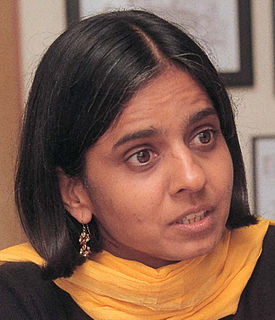A Quote by Freeman Dyson
The thing that makes me most optimistic is China and India - both of them doing well.
Related Quotes
The thing that makes me most optimistic is China and India - both of them doing well. It's amazing how much progress there's been in China, and also India. Those are the places that really matter - they're half of the world's population. They're the places where things are enormously better now than they were 50 years ago. And I don't see anything that's going to stop that.
I can say that China has been cooperating with India to search for solutions. On some issues, it's a question of principles for them. On some issues, it's a question of principles for us. On some issues they differ with us and there are issues on which we differ with them. There are some basic differences. But the most important thing is that we can speak to China eye-to-eye and put forth India's interests in the most unambiguous manner.
India does not need to become anything else. India must become only India. This is a country that once upon a time was called 'the golden bird'. We have fallen from where we were before. But now we have the chance to rise again. If you see the details of the last five or ten centuries, you will see that India and China have grown at similar paces. Their contributions to global GDP have risen in parallel, and fallen in parallel. Today's era once again belongs to Asia. India and China are both growing rapidly, together. That is why India needs to remain India.
In terms of building consumer products, the U.S. and China are ahead of India. The interesting opportunity for India is whenever there is a disruption in technology, it gives every country a chance to leapfrog and take a lead. To take an example, China is leaping ahead in growing the China electric vehicle ecosystem.
I am against portraying China as the demon of the global community. China has grasped more quickly than other countries what globalization means and what it demands. The country has learned how to use other people's innovations for itself. India, incidentally, is not far behind China in this respect. Both are not nations in the European sense, but rather cultural communities with enormous markets. The challenge of the future is to work out how to deal with that.


































